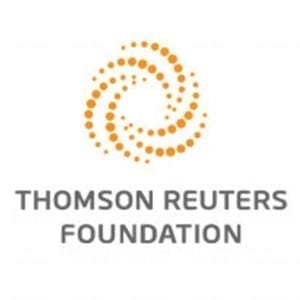Instead of a wasteful ‘take, make and throw’ approach, companies should copy indigenous principles and aim for a ‘circular’ way of work that recycles and re-uses.
Global businesses should heed traditional, indigenous knowledge to better protect land, honour old customs and boost profits, participants at a conference in New Zealand said on Thursday.
Instead of a wasteful ‘take, make and throw’ approach, companies should copy indigenous principles and aim for a ‘circular’ way of work that recycles and re-uses, said participants at a summit devoted to the circular economy.
“We’re a Maori organisation so while there’s a very strong commercial and business arm to what we do, there’s also a cultural, charitable and community focus,” said Kerensa Johnston, chief executive of Wakatu Incorporation.
New Zealand-based Wakatu has about 4,000 shareholders who mostly descend from the region’s original Maori land owners.
Johnston said the firm followed the traditional tenets shared by many indigenous people, whose way of life is under threat globally as governments and corporations seek to develop the land and resources that sustain their native communities.
“We understand that our relationship to the land is inherent in the health and well-being of our people,” she said.
The multi-million dollar enterprise has businesses that range from farming to food and drink, and operates with a 500-year, inter-generational business plan, said Johnston.
NO MYTH, NO FABLE
Protecting land and promoting sustainable development were built into indigenous culture yet were often lost in modern firms, said Joe Iles of the Ellen MacArthur Foundation, a British charity that promotes the circular economy and hosted the two-day meeting.
Such principles could help companies reduce waste and use a host of products longer, while still boosting growth, he told the Thomson Reuters Foundation, by phone from New Zealand.
“The Maori world view places a great emphasis on the interconnectedness of everything,” said Iles.
“It’s serious technical knowledge. It’s not based purely on altruism or fables or myths.”
Up to 2.5 billion people around the world depend on indigenous and community lands, which make up more than half of all land globally.
Hinemoa Awatere of New Zealand’s Ministry for Environment said there was “increasing willingness” by her government to embed indigenous knowledge in the wider economy.
Indigenous businesses were flourishing in New Zealand and could do so elsewhere, she said, so long as mainstream currents that shape Western business listened to ideas from the South.
For Chris Kutarna, an academic at Britain’s Oxford University, indigenous principles with appeal to consumers could easily be woven into modern business, be it in a more sustainable use of raw materials to better product packaging.
“The big cognitive shift that we need to make is from discounting the past to revaluing the past,” he said.
“Knowledge is a collectible too,” Kutarna said.
The rights of indigenous people to land is protected by international legal conventions including the United Nations’ Declaration on the Rights of Indigenous Peoples, which was endorsed by hundreds of countries in 2007.
Yet from India to Brazil, indigenous communities are often threatened by logging, mining and agribusiness companies.
By Adela Suliman; editing by Lyndsay Griffiths.




































